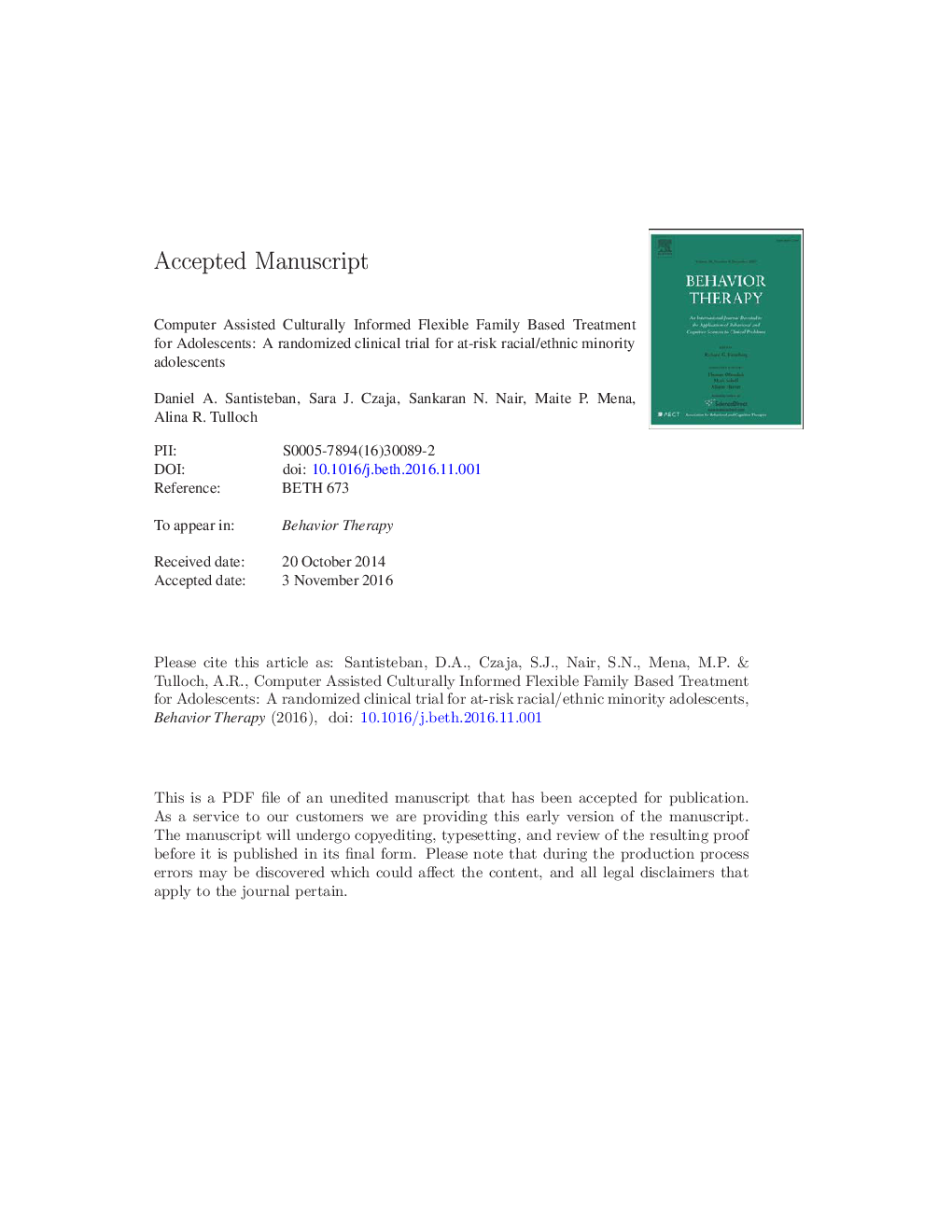ترجمه فارسی عنوان مقاله
اطفال شناخته شده و انعطاف پذیر برای درمان مبتنی بر خانواده برای نوجوانان: یک آزمایش بالینی تصادفی برای نوجوانان اقلیت نژادی / نژادی در معرض خطر
عنوان انگلیسی
Computer Informed and Flexible Family-Based Treatment for Adolescents: A Randomized Clinical Trial for at-Risk Racial/Ethnic Minority Adolescents
| کد مقاله | سال انتشار | تعداد صفحات مقاله انگلیسی |
|---|---|---|
| 128973 | 2017 | 42 صفحه PDF |
منبع

Publisher : Elsevier - Science Direct (الزویر - ساینس دایرکت)
Journal : Behavior Therapy, Volume 48, Issue 4, July 2017, Pages 474-489
ترجمه کلمات کلیدی
خانواده درمان مداخله فناوری، نوجوانان مشکلات رفتاری،
کلمات کلیدی انگلیسی
family therapy; technology intervention; adolescent; behavior problems;

